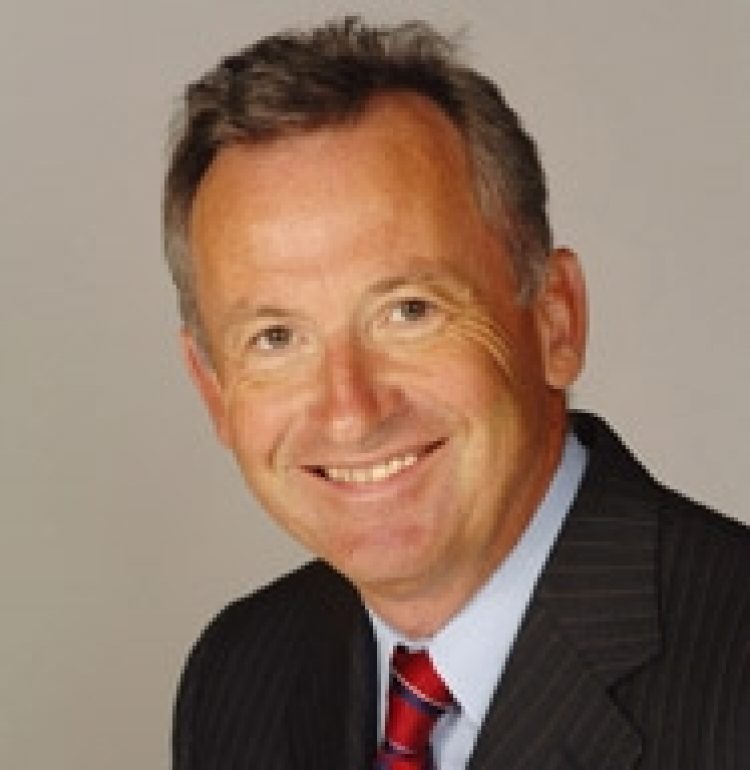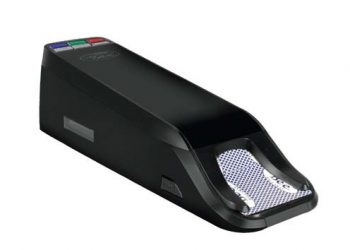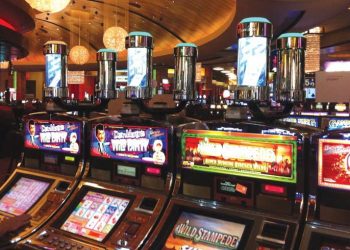Fresh thinking on the slots and systems industry is a welcome necessity not a threat, says Aristocrat’s new CEO
Jamie Odell, Aristocrat’s recently-appointed Chief Executive Officer and Managing Director, has done and is currently doing a lot of listening as part of a strategic review of the company’s business.
His hiring and the review are timely. It’s no secret that despite an enviable catalogue of hit products, Aristocrat has recently found it harder to sustain the level of sales performance achieved in previous years. Aristocrat isn’t alone in facing this issue, and current macroeconomic conditions aren’t helping in this regard.
At the end of August, when the results of Aristocrat’s strategic review are due to be made public, Mr Odell will still be listening, but he will also start doing a considerable amount of talking. What he says could well shape the direction and success of Aristocrat for years to come.
Inside Asian Gaming got the chance to sit down with Mr Odell at G2E Asia, where he gave a flavour of the opportunities and challenges facing his company in particular and the industry in general.
One of Mr Odell’s first tasks has been to address his own workforce to assure them that change is, and will be, for the good of the business and not change for change’s sake.
Mr Odell’s previous job was for Foster’s Group, the Australian drinks conglomerate, where he was managing director of its Australia, Asia & Pacific division. This gives him the advantage of being able to look at the gaming industry from the perspective of the consumer and with fresh and relatively clear eyes. It doesn’t mean, however, that he isn’t passionate about his new role and his adopted industry.
“I think this is a fabulous industry,” stresses Mr Odell.
“The relatively limited number of industry players, including Aristocrat, actually driving the technology changes makes it a really fascinating industry to be in.
Strengths
“There’s always good and bad things about people coming in from outside. I come from a strong consumer goods background. What that really means is understanding the consumers—the [machine] players—in our industry and what drives their behaviours and being very close to that. So I think that’s an area where I can add some value.
“I think in a general marketing, front-end sense, probably this industry isn’t as developed as other industries like consumer goods industries. I’ve worked in the majority of markets around the world so having that global skill set is useful as well. Having a different perspective on how industries develop and different phases of industries [is useful]. I think [I can also bring] a fresh look at important things like innovation.
“Like all industries, I think we can get caught up in our own ideas and focus in our own universe a little bit. I think having an outside perspective when it comes to management, games, the markets, customer relationships, innovation, all those things, is useful.”
IAG: Some slot directors feel that generally the suppliers take a bit of an ‘older brother’ approach to what product will work and where it should go on the casino floor. What’s your reaction to that?
“That’s interesting. I don’t want to go too much into grocery-speak, but if you think about category management, there needs to be a good understanding from both the manufacturing side and the operating side on how you work together on that.”
Sharing insights
“All markets are different, but from my background those [cooperation] skills are pretty well developed. Retailers understand how shoppers work, and [casino] operators understand how players work. The manufacturers have all sorts of different insights into what are the particular features for example and the elements of a game, or the ergonomic factors [in terms of machine layout, seating and general player comfort] that are attractive to the players.
“So I think this industry can move forward in having a partnership approach, as opposed to manufacturers saying ‘This is what you need to do’.”
Do you think in a challenging economic environment that partnership is more likely to be boosted?
“Absolutely. I must say again this is a fabulous industry and I need to protect this industry, to understand the new agenda, particularly around things like responsible gaming and to work together to make sure the industry is sustainable. Everybody in every part of the chain needs to be involved in that collectively. I absolutely think there needs to be one approach about how to make the industry even better and even more successful. Clearly within that we [manufacturers] need to compete, but not to forget that the industry—and when you’re here in a place like the Venetian it’s a superb reminder—is a fantastic experience. Consumers—players—are coming here for an all round experience which includes gaming, entertainment, eating and drinking, staying in a nice resort and using facilities such the spa. We’re working with all those partners holistically to make sure the experience keeps getting better and better. We can all do a better job when working as one industry.”
Do you see consolidation happening in the gaming industry in terms of the number of equipment suppliers?
“I think over time people are always going to look at the issue of consolidation and what benefit may come from that. I don’t think our industry is any different in that regard. At the same time there’s going to be continued fragmentation around the edge. You see at a place like G2E Asia there are a lot of small manufacturers, because new technologies are being developed all the time and because sometimes the best ideas come from outside.”
Change we need
Aristocrat has been very strong in the Macau market. Is it a case of ‘if it ain’t broke don’t fix it’, or is it about preparing for the future?
“It’s an interesting question. We’re in the middle of a strategic review that will be made public at the end of August. There are a number of things we do very well. We make very good video machines and our core business is extremely strong. We have got great mathematicians and the games work very well. They generally outperform the floor average and we’re very proud of them. We must continue that and protect that; that’s most important.”
Aspirations
“But there are also areas where we’ve got to grow a bit more as well. I think we’ve got to get better at emerging technologies. We see some of our competitors doing that better than us. We’re still not a really serious player in the stepper market. We showed our RFX™ Stepper which is our US stepper, on the stand at G2E Asia, but we’re still not a major player in that element. There are all sorts of new gaming such as connected gaming coming through as well, which is using new technology. Again, we need to consider how we get more of that.
“I’m very proud of what the guys have done here in Asia. In Macau particularly, we have a very strong position. I want to protect everything about that but also recognise that—particularly in those areas driven by new technologies—we’ve got to get into some new spaces. That’s where I want us to have some accretive business coming through in future.
Core and more
“Fundamentally we make games and systems. That will remain our core business. We’re pretty focused at the moment in the video space, and we’re thinking about how we can build our capabilities as players look for even more adventurous games. Some of these games are themed around strong entertainment themes, some using new technology. I think we can do a better job of getting into that space.
“It’s not going to be good enough just to keep on doing what we’re doing, because the world’s going to change around us. We’ve got to get better at getting all those front end insights and understanding how those changes are coming.”
Was the internal review something that you instigated?
“Absolutely. I don’t think it’s at all uncommon for a new CEO to come in and say ‘Now’s the time to look at the business’. I stated very clearly that we needed to look at our business going forward. It’s been a challenging time. Anyone who observes our results has seen that and we’re not alone in the industry in that respect. But it’s absolutely the time for us to look at how do we run a sustainable business going forward. One of the issues for our business and for our industry generally is that there hasn’t always been that sustainable success. In our case we’ve had a great run of success but in the last few years have fallen away a little from those peaks. I guess a new guy coming in needs to ask ‘Where are we getting our growth from in the future and how are we going to make it more sustainable?’ We don’t just want to be one-hit wonders.
System and process
“It’s about having a systematic approach—one that’s process-driven, to make sure that you keep on learning all the time and adding all the time, rather than standing still. One of the great things about this industry is it’s driven by new technology. It’s really very exciting. You just have to walk around the floor at G2E Asia to see that. The danger is that you get left behind if you don’t immerse yourself in it. You have to keep moving forward. Other industries that are driven by technology have the same challenge.”
Could common standards and interoperability among gaming manufacturers lead to a homogenisation of product?
“I don’t think so at all actually. If anything I think it’s going to become more diverse. It’s interesting if you talk about server-based gaming, which as an industry we’re not yet adopting as a whole—you end up with this imagery of the common terminal with different games coming through. But if you actually look around the floor, hardware is playing a fairly important part in that as well. So what I see happening in a number of markets is a lot of people are playing pure gaming, and a lot of people are getting quite an entertainment feel out of it. The volatility of the games is changing. That’s something I think we need to be increasingly aware of in relation to the responsible gaming agenda in a number of markets. So I honestly think our gaming industry will diversify a little bit to cover core gaming, new technologies and games offering even more pure entertainment. The evidence for that is you only need to walk around the floor and see the multitude of options—the community gaming for example has added a whole different option. So many of those machines aren’t just standalones any more. You will see people playing on them collectively and sharing the features. That’s very different. I don’t think for a moment that that will replace standalones, but I’m saying I think it will diversify [the industry]. People want different experiences.”
Because of recession some Macau casinos reportedly now offer live baccarat tables with minimum bets as low as HK$50. Doesn’t this prove that markets, including slot markets, can quickly be changed by external dynamics?
“If you go back to the success of Aristocrat when they put so many low denom [ination] machines into the US, that changed the industry over there. People hadn’t previously realised that by using so many lines the games could be so entertaining and so popular. Those kinds of changes will continue to come through. Our industry is exciting and we have to be led by innovation. I admire everybody who is innovating. It’s going to drive the business forward. It’s also going to be vital to our success. We can’t just stand still and do the same things. If we did, ultimately we’d start to decline, so we’ve got to develop new ideas and new games.”
A business is about more than one person, but what key points would you want to make to investors and analysts about Aristocrat’s business if they were standing in front of you now?
“Wait for August! What I can say is we’re going to be clear about what our strategy is going to be and how we’re going to achieve it. We’re going to build the capability, and measure and hold ourselves accountable against that. It’s going to be about clarity of purpose, focus, and making sure we build the right capabilities for our people and measure ourselves against it, and just to keep on trying to grow, learn and build a business.”































